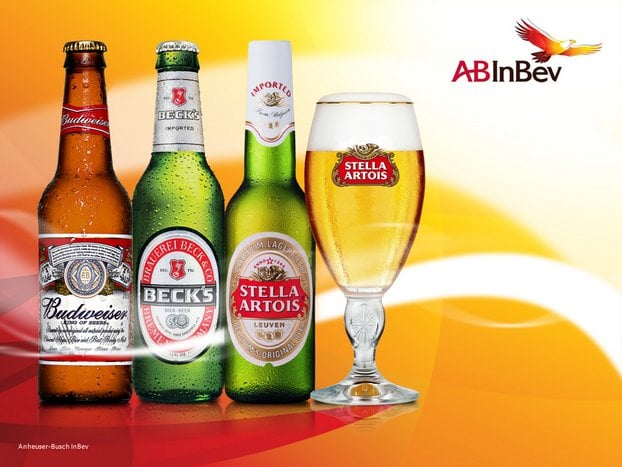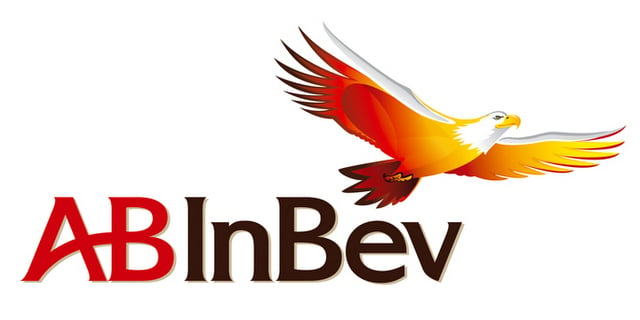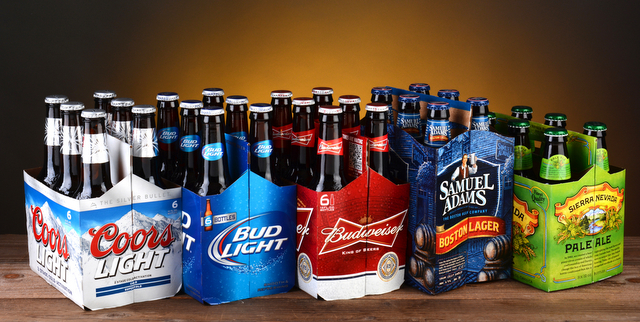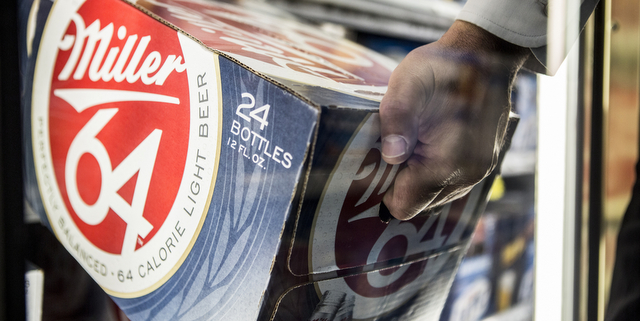
Anheuser-Busch InBev might soon monopolize most of the world’s beer markets (cue diabolical laughter), so how will this affect the American craft beer market? The Belgian-based, world-conquering Voltron of beer has agreed to buy rival brewer SABMiller for a deal reportedly valued at $104 billion. The acquisition will represent the largest beer merger in history, but let’s just pump the brakes there AB InBev. We don’t see this circus flying in the U.S. of A.
Let us take the way-back machine to June of 2013: AB InBev had just completed a $20.1 billion deal to purchase Mexican beer conglomerate Grupo Modelo, S.A.B. de C.V., at least buying the rest of the company it did not already own. But, AB InBev had to first make some power moves that satiated the U.S. Justice Department because of antitrust concerns. The company pointed to Grupo Modelo and its joint venture with Constellation Brands (a Fortune 1000 company that is a world leader in premium wine). The joint venture was called Crown Imports LLC, and it allowed Constellation to distribute and market Grupo Modelo’s beer brands in America, including Corona Extra, the No. 1 imported beer in America. To avoid antitrust laws, Grupo Modelo and AB InBev agreed to sell its half of the joint venture to Constellation Brands. Constellation paid $1.8 billion to take complete ownership of Crown Imports, and AB InBev agreed to give up its option to buy the rights to distribute Grupo Modelo brands in the United States.
We see this deal going the same way. In order to get the merger past the U.S. Department of Justice, AB InBev should be forced to sell some of its assets in the United States, including SABMiller’s stake in the MillerCoors joint venture with Molson Coors. Of course, that does not resolve any concerns when it comes to international distribution, and while this power move is focused on global markets, AB InBev still has its Terminator eye focused directly on the U.S. market — at a distribution level…
Of course, the rest of the world will be greatly affected by this mega-deal. We’ll hand the mic over to IBISWorld Beer and Spirits Sector analyst Nick Petrillo, who shares his insight below on how the overall beer industry will ultimately be impacted:
The move is a mutually beneficial merger between the two beer behemoths, which will allow the companies’ combined outreach to span throughout much of the developed world. For AB InBev, which has significant market exposure in North America and South America, consolidating with SABMiller’s distribution network will facilitate far greater brand manufacturing and distribution access throughout untapped regions in Africa and Asia. For SABMiller, the British-South African brewing company’s distribution network already spans much Africa and is expanding throughout Central Europe. The merger will fill in the two companies’ respective geographic gaps in distribution and combine to make a massive global brand portfolio that includes the likes of Budweiser, Stella Artois, Beck’s, Hoegaarden, Michelob, Foster’s, Cascade, Grolsch, Indus Pride, Leinenkugel’s, Mercury, Miller High Life, Milwaukee’s Best, Peroni, Olde English, Pilsenm Pilsner Urquell, Redd’s and many more.
The blockbuster agreement reflects the global beer market’s lackluster growth in recent years. With consumer demand stagnant and affordable beer widely available throughout much of the developed world, major beer manufacturers have been reluctant to invest significant amounts of capital into new larger distribution networks and additional manufacturing locations. As a result, merger and acquisition activity has increasingly posed an attractive alternative for these major beer manufacturers, since merging allows companies to simply consolidate preexisting distribution and manufacturing platforms without the need for costly capital investment. AB InBev’s buyout of SABMiller would, in theory, allow both companies to eliminate their largest source of competition while combining the distribution outreach of their product portfolios in the process. While redundancies along the supply chain may need to be eliminated along the way, major mergers have proven to be a more efficient strategy for many alcoholic beverage companies.
Outlook
Although the merger presents some implications for the U.S. breweries industry, this is a deal that largely does not concern the domestic market. Both AB InBev and SABMiller regard the North American market as an area that holds minimal growth potential. In 2008, recognizing that the company’s financial prospects were grim due to sluggish domestic performance, Anheuser-Busch welcomed a takeover by Brazilian company InBev for $52.0 billion to gain brand exposure elsewhere across the globe. Today’s planned deal is a continuation of the company’s mindset and will introduce both companies’ brands to an even larger global customer base. With the Global Beer Manufacturing industry projected to grow at a minimal 0.6 percent annualized rate over the next five years, major mergers have been a practical necessity for global manufacturers to expand revenue and profit margins.




Krones AG liked this on Facebook.
Jim Sung liked this on Facebook.
Cristina Grazia liked this on Facebook.
RT @CraftBrewingBiz: AB InBev agrees to buy SABMiller for $104 billion (a deal that largely does not concern the US) http://t.co/ZWkxhR0zur